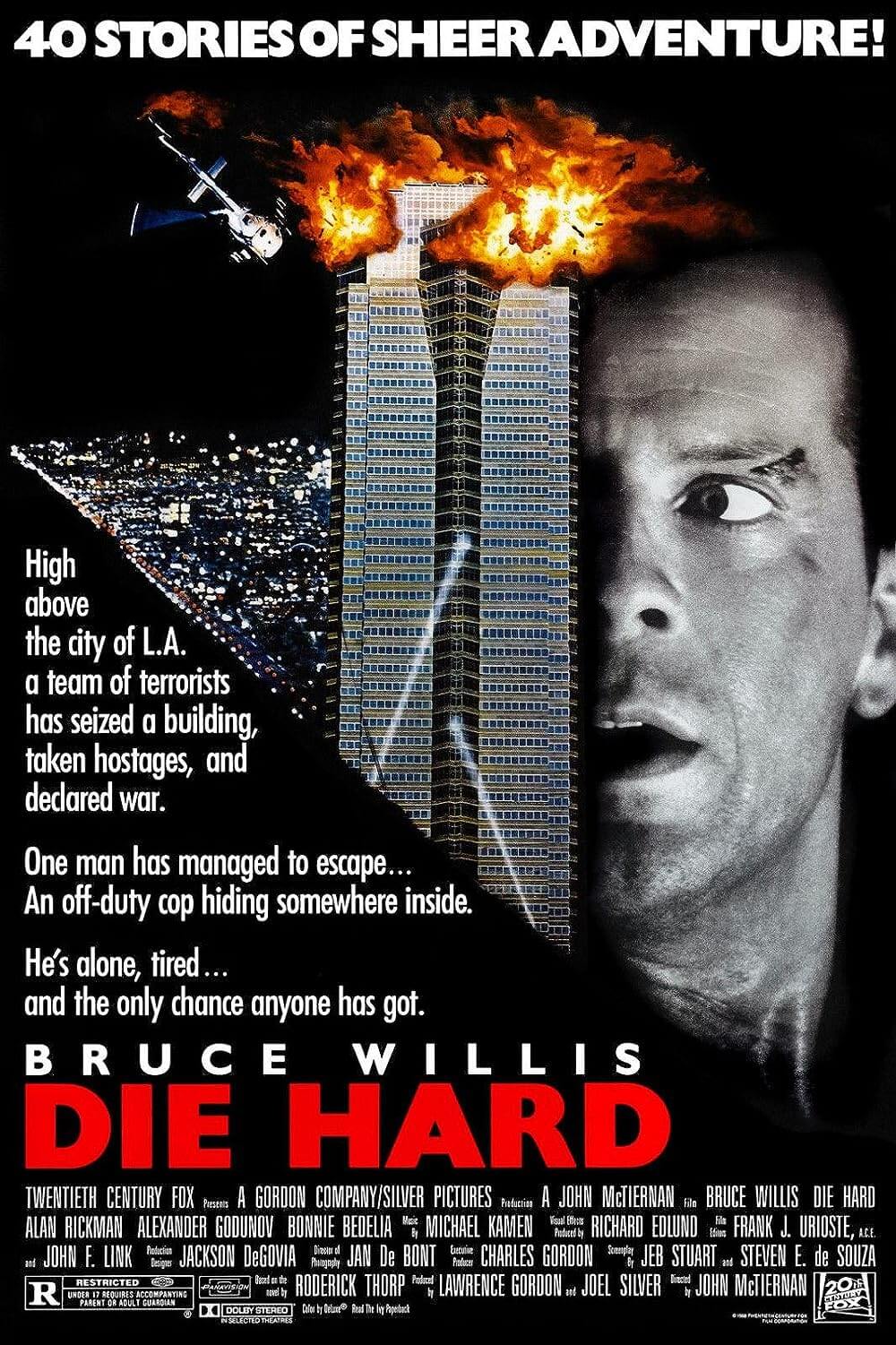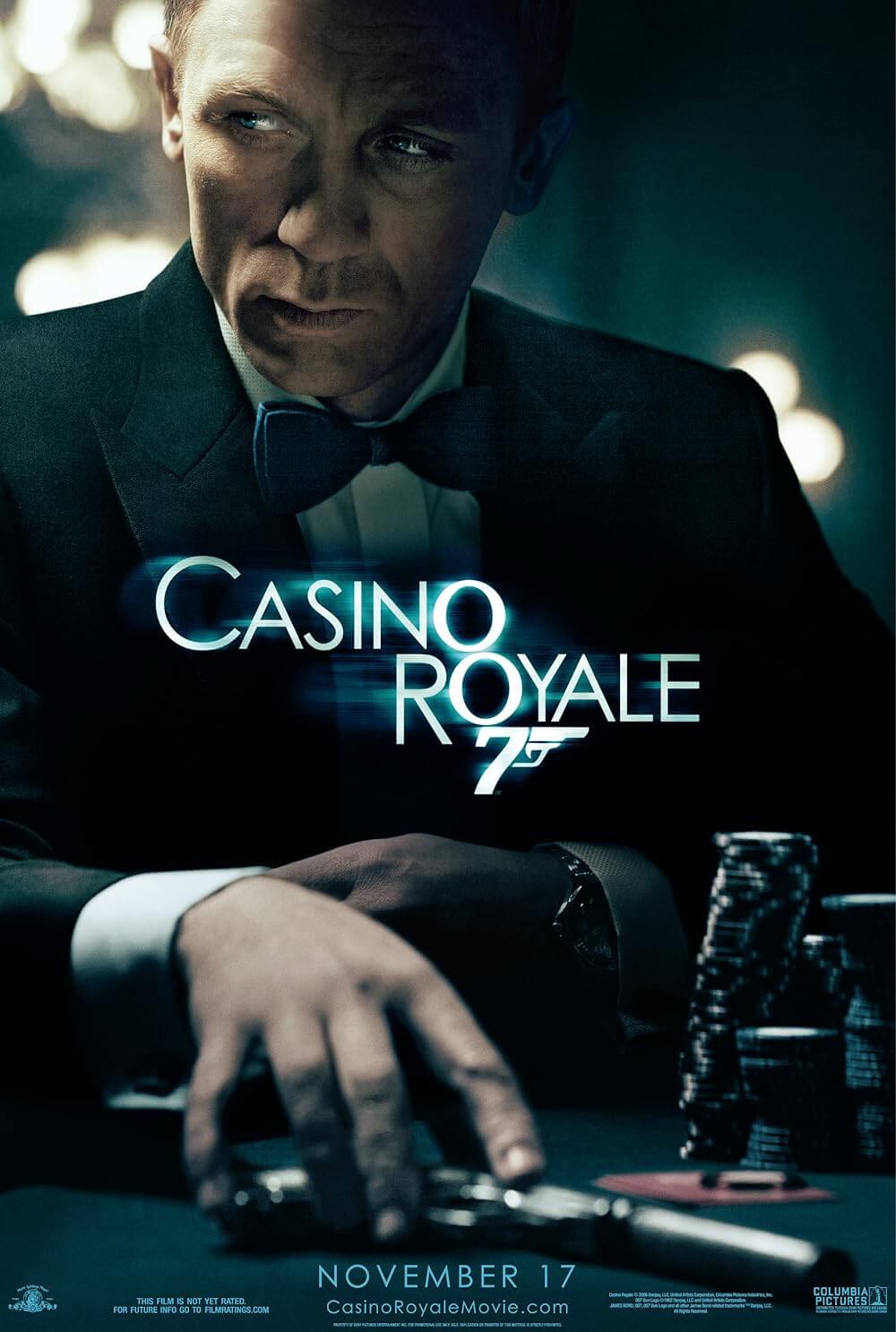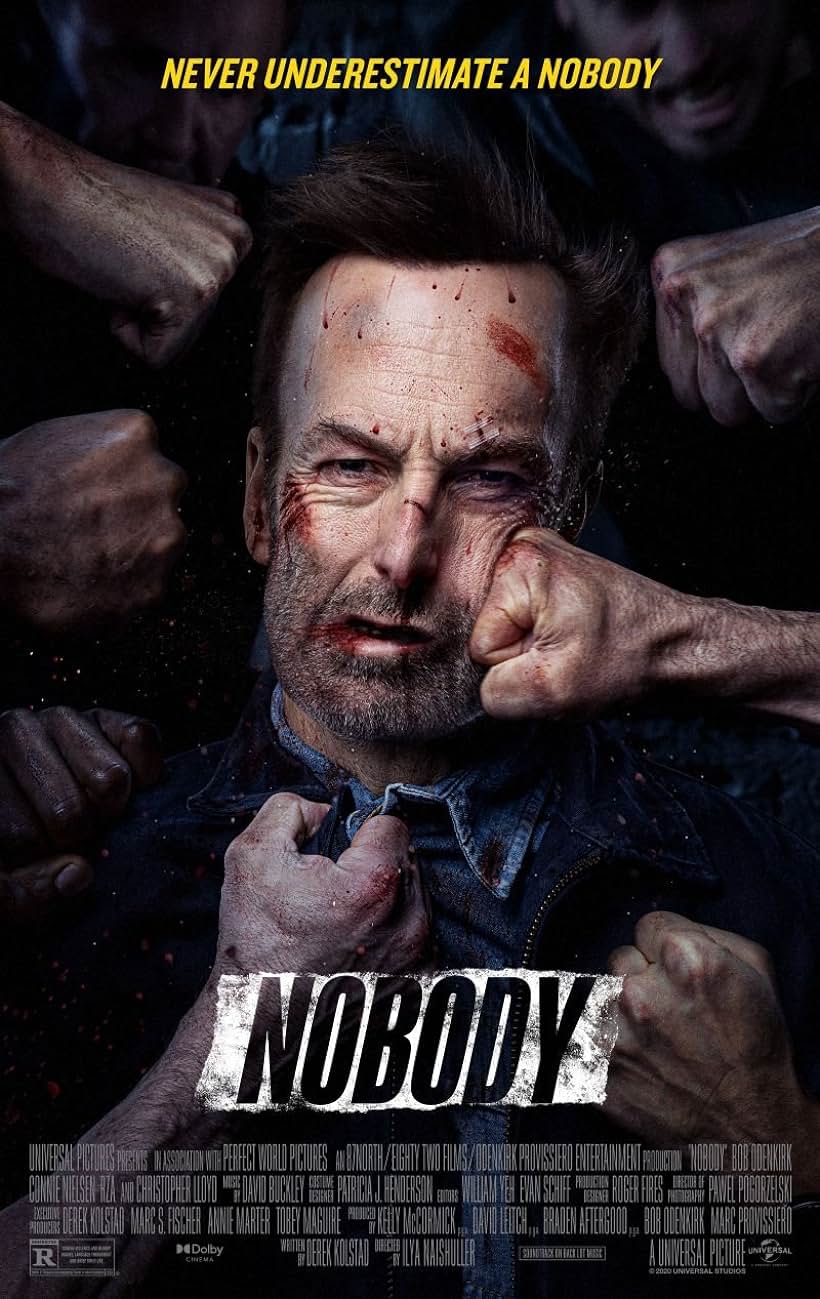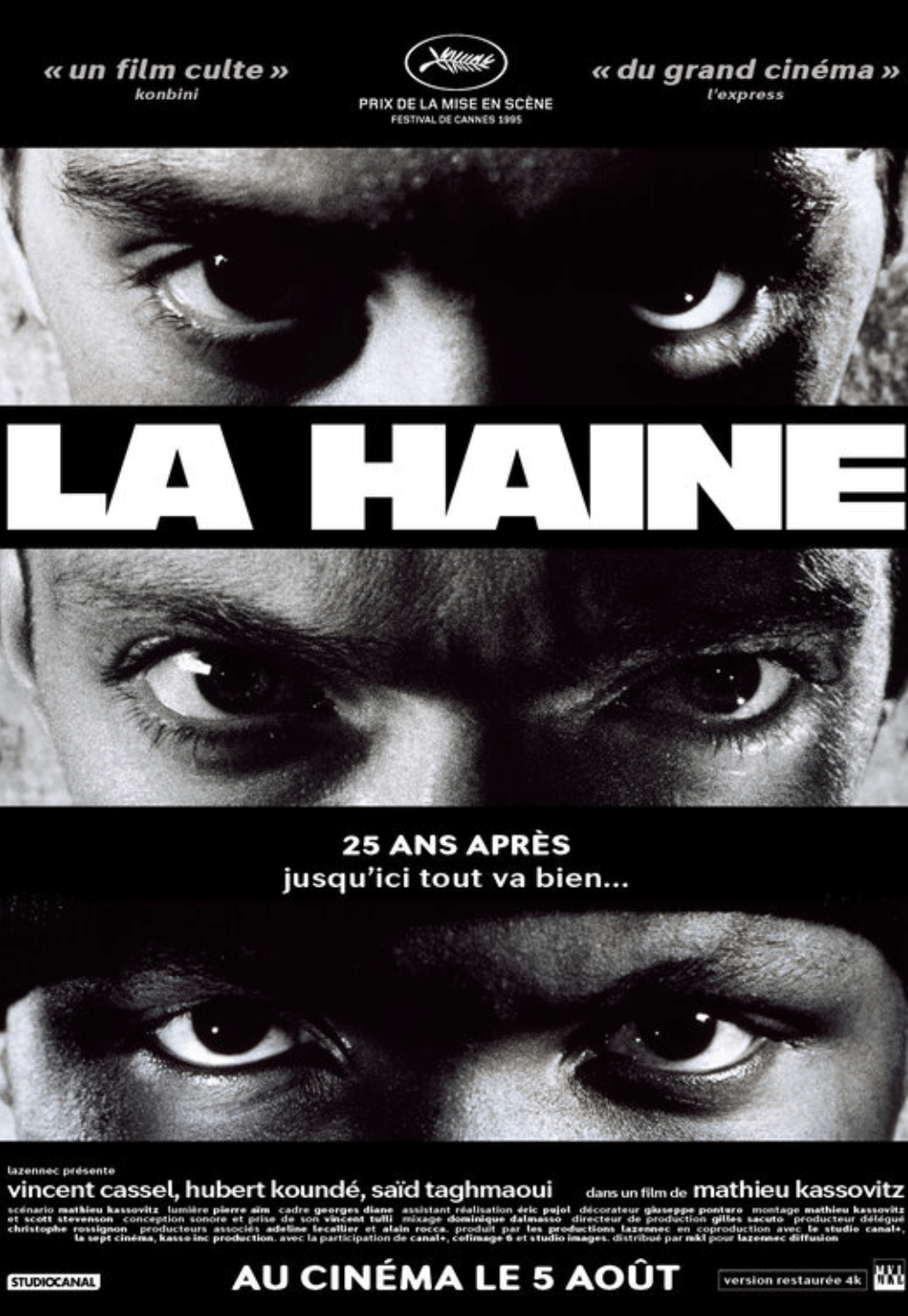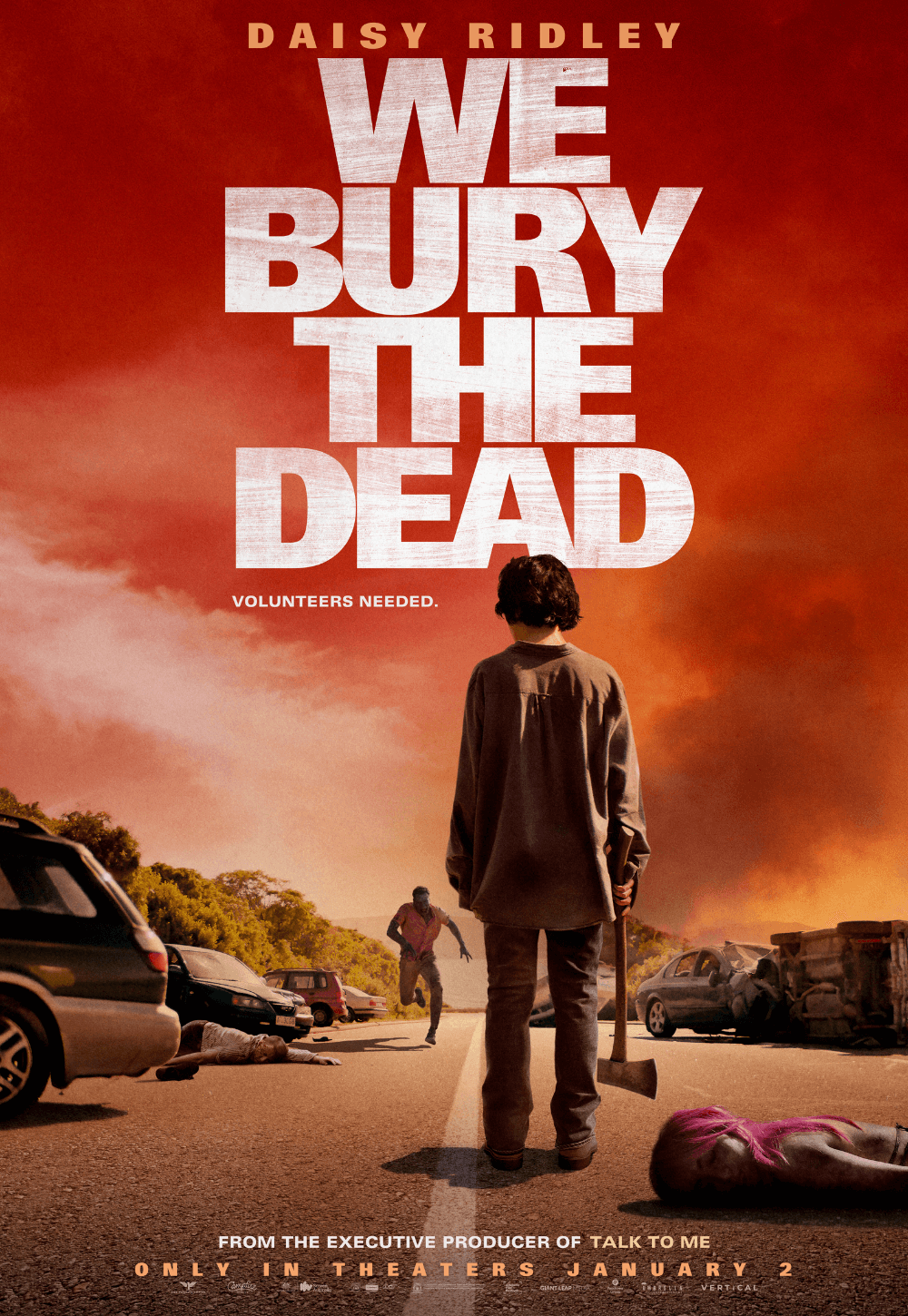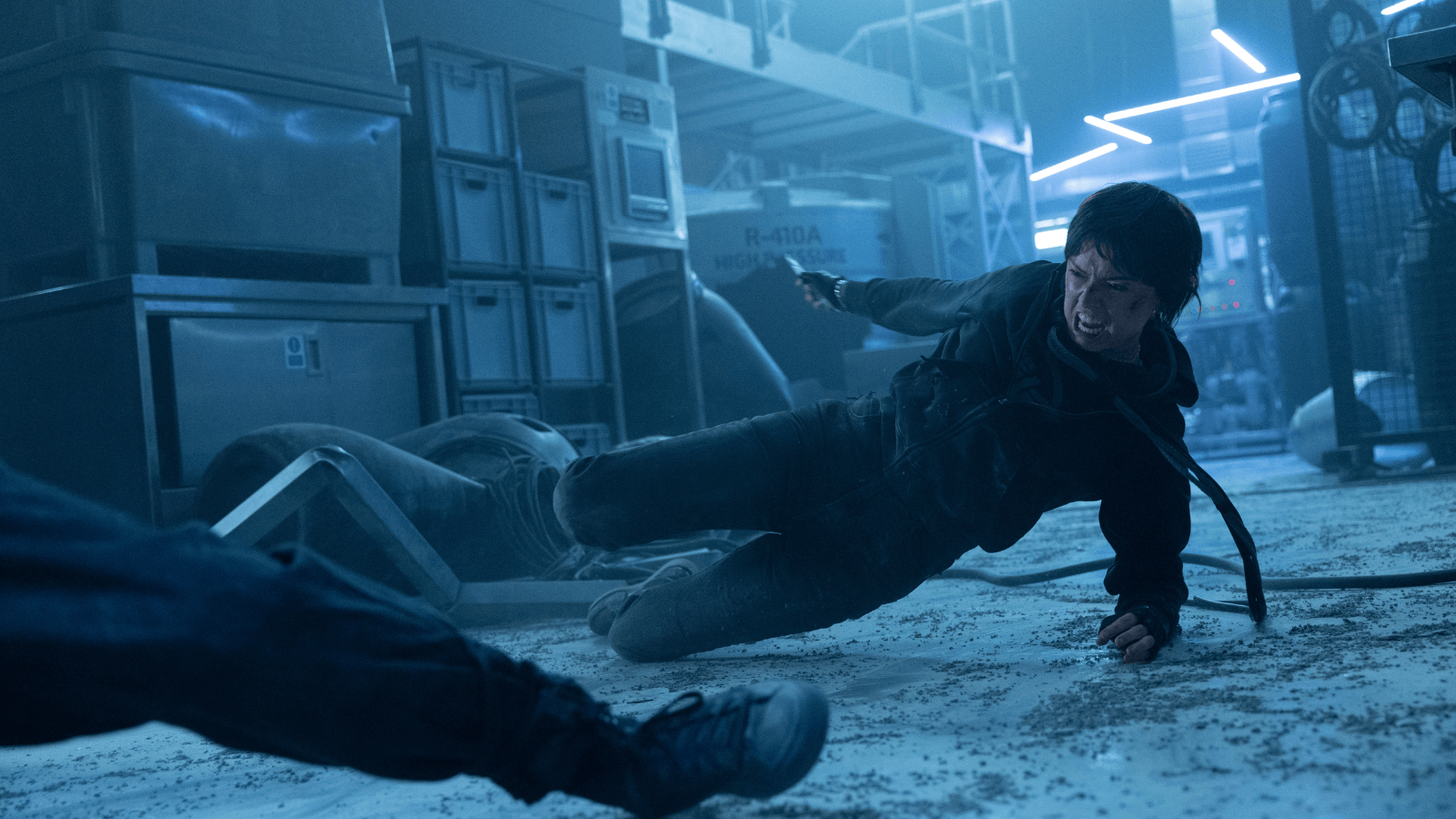
Cleaner
By Brian Eggert |
Cleaner is a banal action movie with a script that recycles every idea from a variety of box-office hits. Despite a talented cast and skilled director, it’s little more than a spliced-together version of better films—specifically, riffs on the Die Hard (1988) scenario, where a single hero fights off terrorists in an isolated location. Most of such copycats followed in the 1990s and innovated with unique settings, such as a Navy battleship in Under Siege (1992), a plane in Passenger 57 (1992), a mountain in Cliffhanger (1993), a bus in Speed (1994), a hockey stadium in Sudden Death (1995), and the twin White House examples from 2013, Olympus Has Fallen and White House Down. I have seen so many movies like this that the subgenre has moved beyond mere variations on a theme and entered the realm of mind-numbing cliché, mainly because studios seldom attempt to deviate from a proven formula. A great movie may yet come along and revive the concept, but Cleaner isn’t it.
Like Skyscraper (2018), the Dwayne Johnson vehicle involving terrorists in a fancy new building, Cleaner barely tries to disguise its resemblance to Die Hard. The story unfolds at the corporate headquarters of Agnian Energy, a company run by two brothers, Geoffrey and Gerald Milton (Rufus Jones and Lee Boardman), who might as well be named Weinstein—one is a predator, the other corrupt and intent on silencing whistleblowers. Although they use buzzwords such as “sustainability” and “trust,” advertising a “brighter, cleaner future” and a “commitment to renewable energy,” the Miltons only deploy such language as a marketing strategy while concealing their disposal of toxic components. Enter Earth Revolution, a band of eco-terrorists determined to expose Agnian’s false claims of ecological responsibility by crashing a shareholder gala and holding the duplicitous fat cats responsible.
The hero in these movies is always in the wrong place at the wrong time. Here, the title refers to Agnian building window washer Joey Locke (Daisy Ridley). Joey divides her time between work and looking after her neurodivergent adult brother Michael (Matthew Tuck, also neurodivergent), who carries a replica of Thor’s hammer, measures time in Lord of the Rings movie runtimes, and asks himself (ill-advisedly), “What would Piers Morgan do?” Although Joey is intelligent and resourceful, she’s also rebellious and a trained fighter, which is hinted at when her petty boss conveniently drops that “It’s no wonder the army kicked you out.” So, when masked and armed villains show up, it’s no surprise when Joey resolves to take matters into her own hands. Trapped outside on a suspended scaffold, she tries to reach Michael, who is hiding inside. She occasionally communicates with a police superintendent, Claire (Ruth Gemmell), stationed on the ground—cue some obligatory scenes where Joey shares her emotional backstory with Claire via radio.
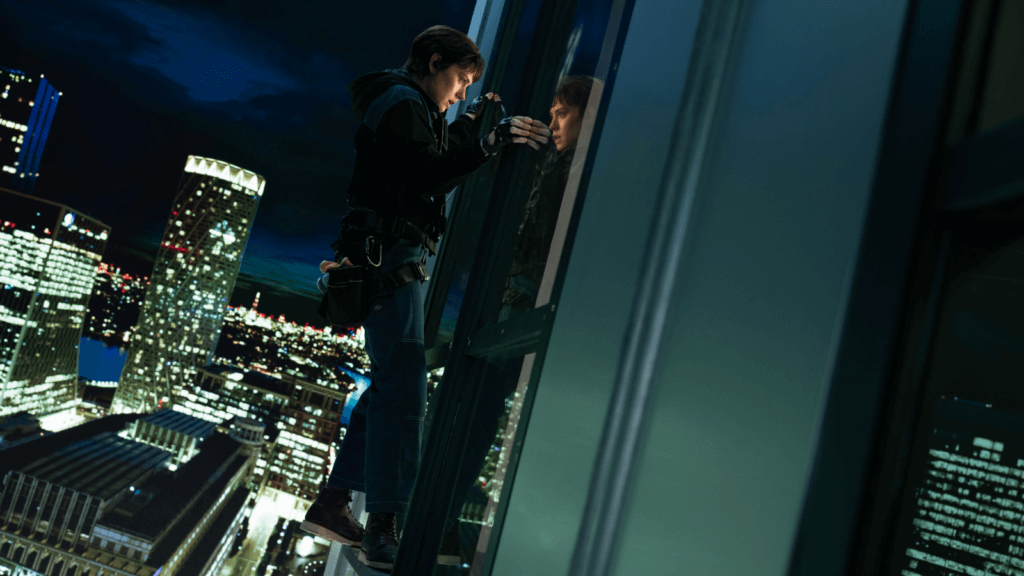
Heading the bad guys, Clive Owen plays Marcus, in a role similar to his part in Inside Man (2006)—that of a criminal who acts from a place of moral superiority. Earth Revolution plans to show the world what the Miltons have done, though Marcus’ cohort Noah (Taz Skylar) takes a far more extreme view. In today’s age of climate change denial and corporate irresponsibility, the portrayal of ecologically minded activists as evil has grown tiresome. Movies such as Kingsman: The Secret Service (2014) and Godzilla: King of the Monsters (2019) have featured villains who take extreme measures to stop human overpopulation and environmental destruction. But demonizing their methods distracts from the root of their motivations, framing their actions as worse than those who take bribes, bury evidence of climate change, and profit from environmental harm. The Miltons and those like them become weeping victims, and screenwriter Simon Uttley never really grapples with the consequences of their actions.
Fortunately, Cleaner was helmed by Martin Campbell, a dependable British action director responsible for No Escape (1994), a personal favorite, as well as two of the best James Bond movies, GoldenEye (1995) and Casino Royale (2006). A competent journeyman, Campbell knows how to construct straightforward action without distracting style or fussy camera movements. His meat-and-potatoes choices serve the story, and his action proves tense and well-constructed. It’s a shame that the movie relies so much on familiar tropes and thoroughly covered storylines, because Campbell’s clear visual sense supplies an involving experience. Overall, Cleaner’s technical presentation is solid, though the lifeless fluorescent lighting of a corporate office gives it a drab color scheme. Also, the film lacks a single sequence or stunt that stands out as a must-see moment.
It’s disappointing that Cleaner has such a by-the-numbers script, as the movie shows faint signs of something special. Above all, Ridley makes a worthy shoot-em-up hero in a role often reserved for men. She gives her performance everything she has and is entirely kinetic and convincing in action scenes. But it’s not enough to overcome the material’s formulaic situations. Owen’s presence is welcome, yet his limited screentime and prominent place in the marketing might represent a bait-and-switch tactic. Worse, the story all wraps up too quickly and easily, in just over 90 minutes, long before Joey and Michael have been brought to their limit. When the story ends with a half-hearted suggestion that environmental justice will be done, it feels like an afterthought and comes across as insulting. The whole experience feels like a knock-off, but a little more work on the script might’ve made it more convincing.
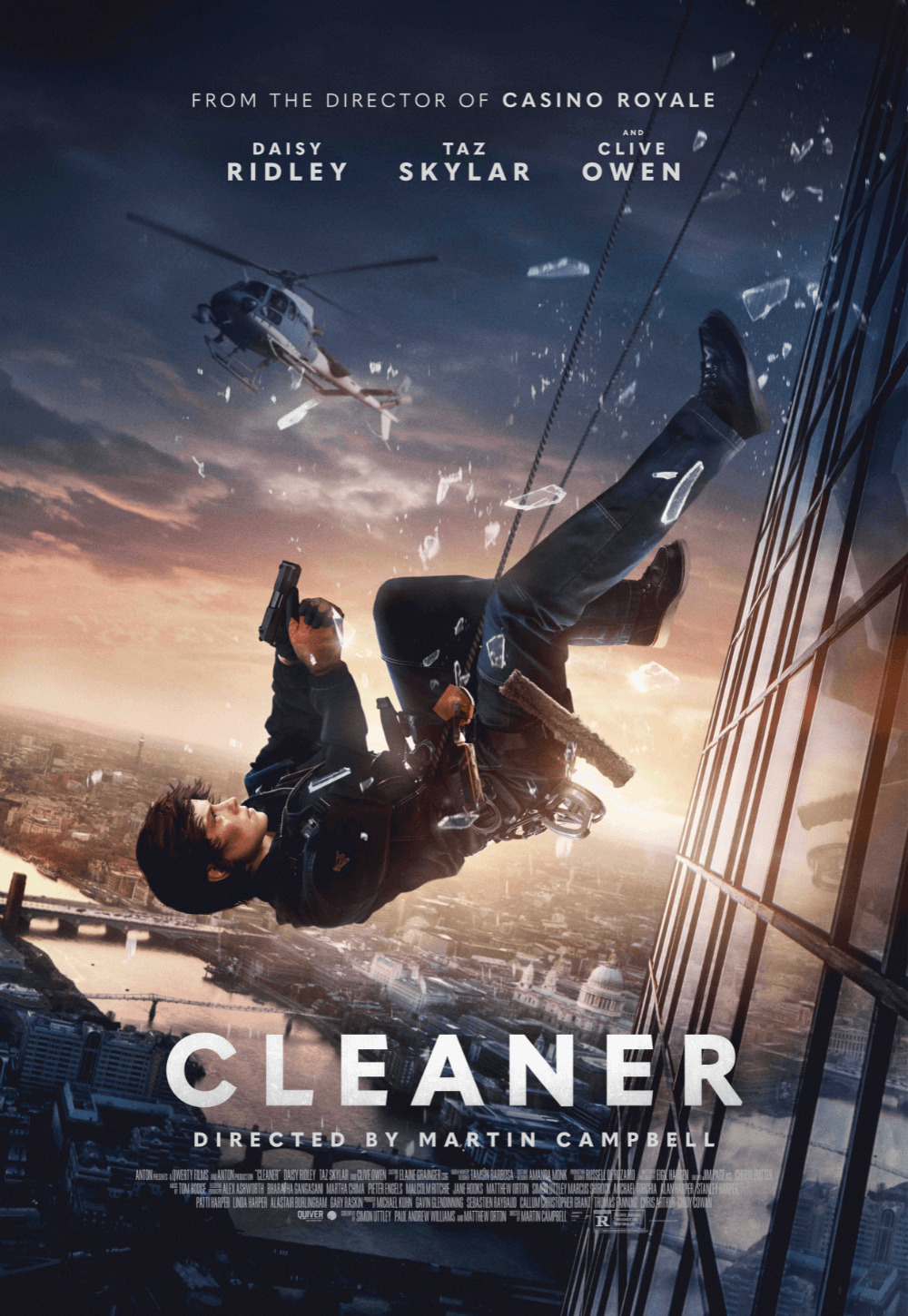
Thank You for Supporting Independent Film Criticism
If the work on DFR has added something meaningful to your love of movies, please consider supporting it.
Here are a few ways to show your support: make a one-time donation, join DFR’s Patreon for access to exclusive writing, or show your support in other ways.
Your contribution helps keep this site running independently. However you choose to support the site, please know that it’s appreciated.
Thank you for reading, and for making this work possible.
Brian Eggert | Critic, Founder
Deep Focus Review


